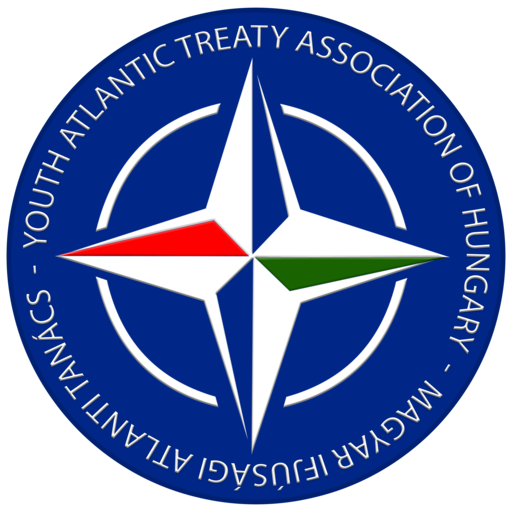Organized by the Youth Atlantic Treaty Association International and the Youth Atlantic Treaty Association of Hungary, with the support of the NATO Public Diplomacy Division (PDD) as the main sponsor of the event, the 2023 NATO Academy explored the theme of deterrence and defense. The University of Public Service (UPS) hosted the event between October 5-6.
The International Republican Institute (IRI), the Eötvös József Research Center within the University of Public Service within were the official partners of the event. The event’s speakers discussed the theoretical, historical, technological, and societal aspects of deterrence with thirty-five students from twenty-two countries.
The future security policy officials from NATO member and partner countries were greeted by Dr. Gergely Deli, the Rector of the National University of Public Service. In his opening speech, he emphasized the importance of building international professional partnerships for the common good, citing as a prime example this year’s NATO Academy held on the Ludovika Campus. Dr. Gergely Deli added that, while nuclear stability has been a focal point of international security for decades, the return of a multipolar world and the intensification of geopolitical competition present us with new challenges, hence the need to discuss deterrence in new light.
The event was also supported by representatives of the Ministry of Defense and the Ministry of Foreign Affairs and Trade. Colonel Antal Szöllősi, Head of the MoD’s Defense Policy Department, reminded attendees that although deterrence is not new on NATO’s task list, the strategic shocks experienced in the past 15 years have shaped a new security environment, bringing collective defense even more to the forefront of the Alliance’s attention. Gyula Somogyi, Head of the Security Policy and Non-proliferation Department of the MFAT, provided a unique perspective on nuclear deterrence, highlighting the importance of the human factor and the multifaceted representation of deterrence in pop culture. According to the department head, the study of deterrence is especially interesting when considering its consequences, which are often hard to identify.
A special guest of the NATO Academy was Jessica Cox, Director of NATO’s Nuclear Policy Directorate. She presented the main theoretical components of effective deterrence and their practical implementation by NATO. Following her presentation, Jessica Cox participated in a panel discussion with Dr. Balázs Mártonffy, head of NUPS’ Institute for American Studies, where they drew attention to the potential nuclear escalation of the Russo-Ukrainian war and discussed prospects for non-proliferation, especially in light of China’s potential accession to the U.S.-Russian START agreement.
The NATO Academy offers a two-day training program that provides a forum for discussing changes in the international security environment and NATO’s adaptation. During this, the participating youth not only attend professional lectures but also have the opportunity for direct dialogue with international experts.
